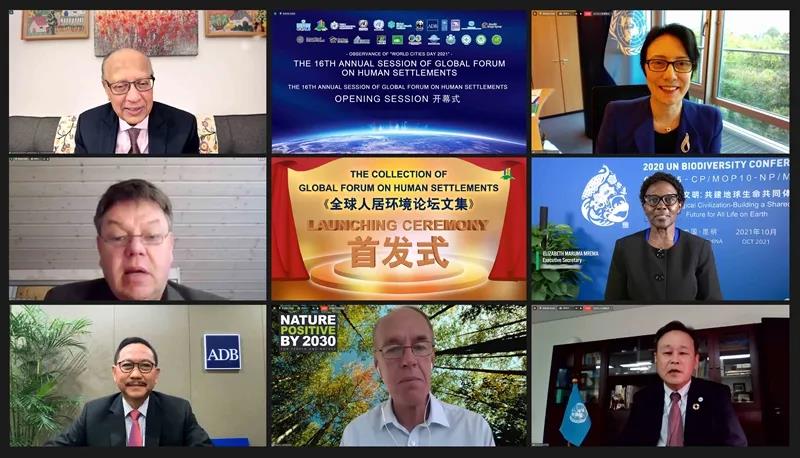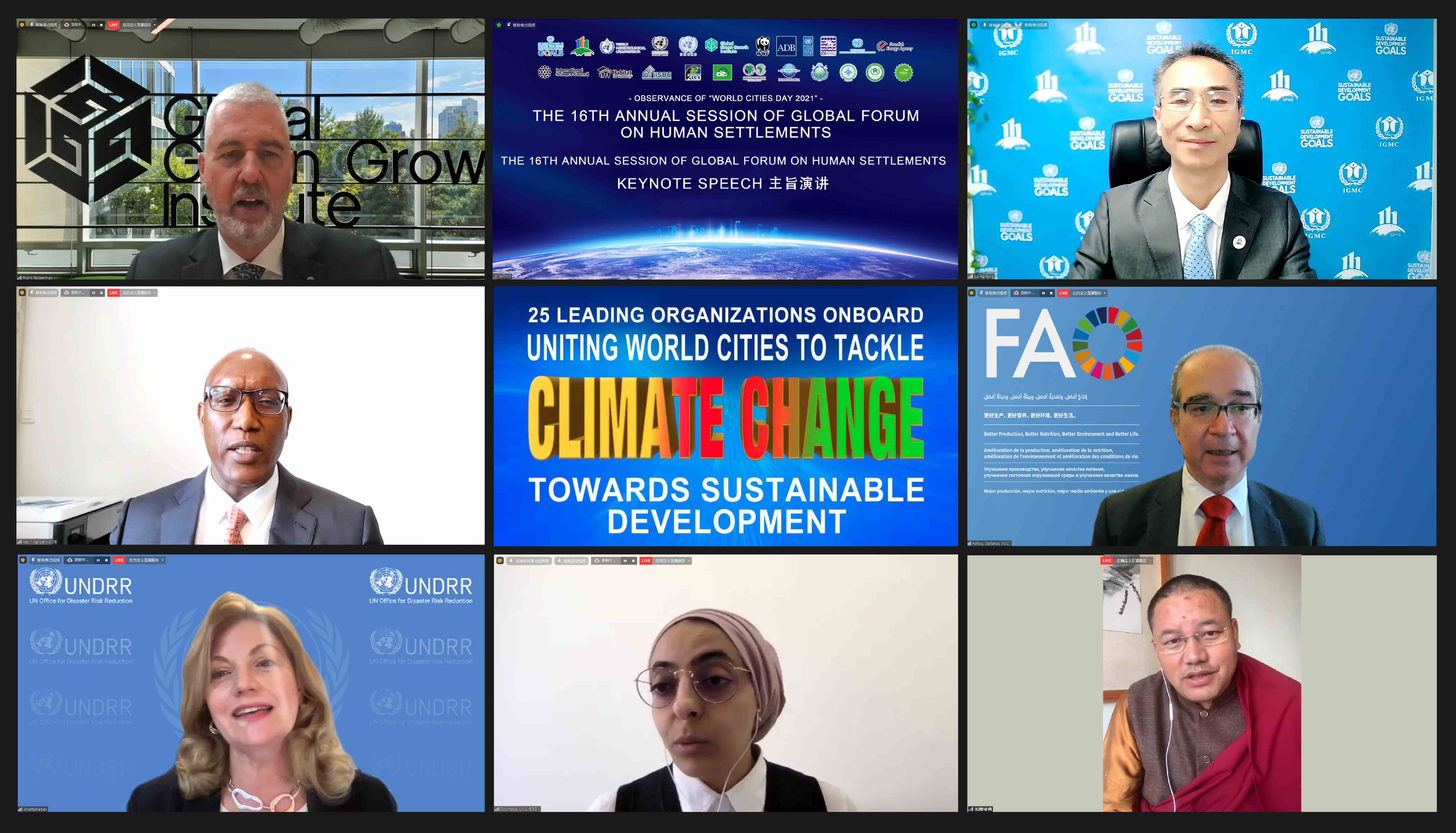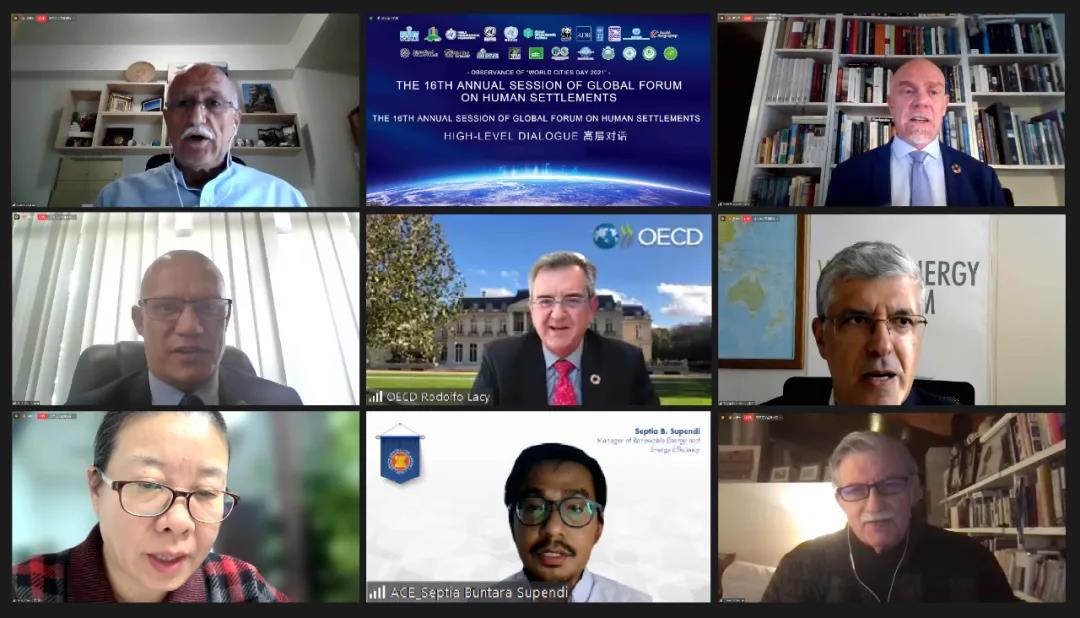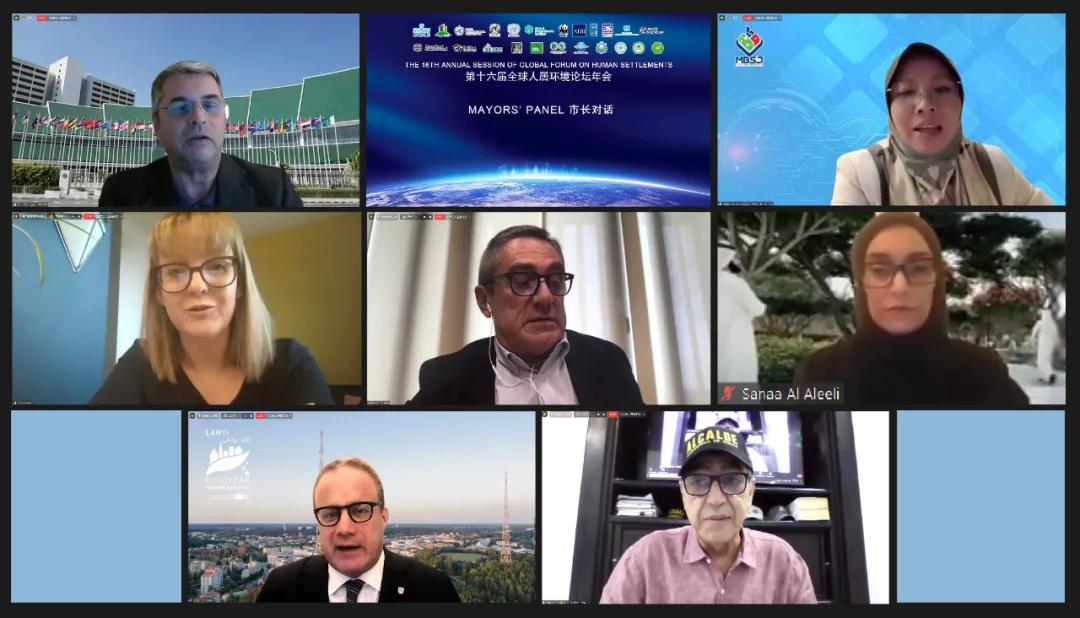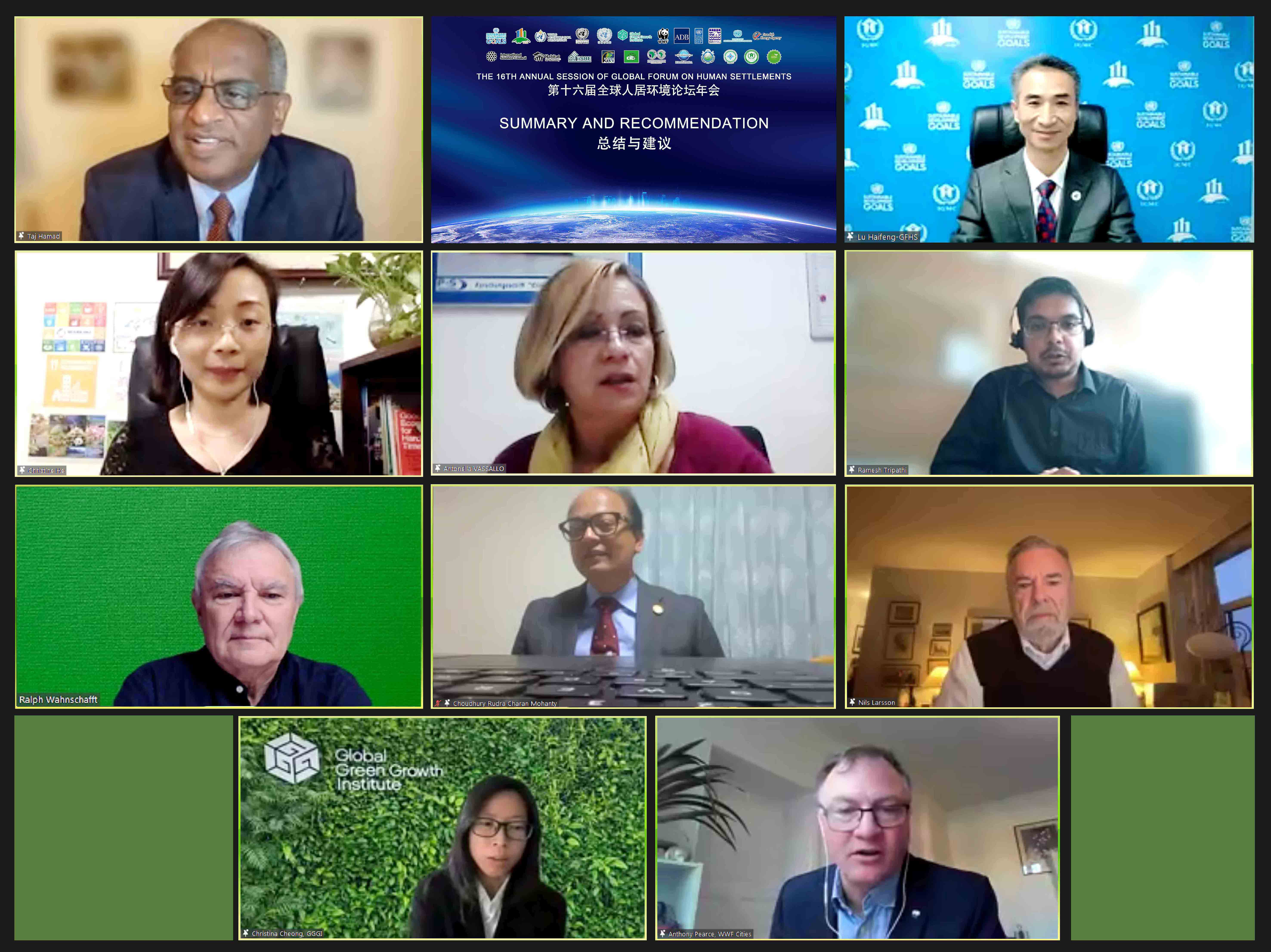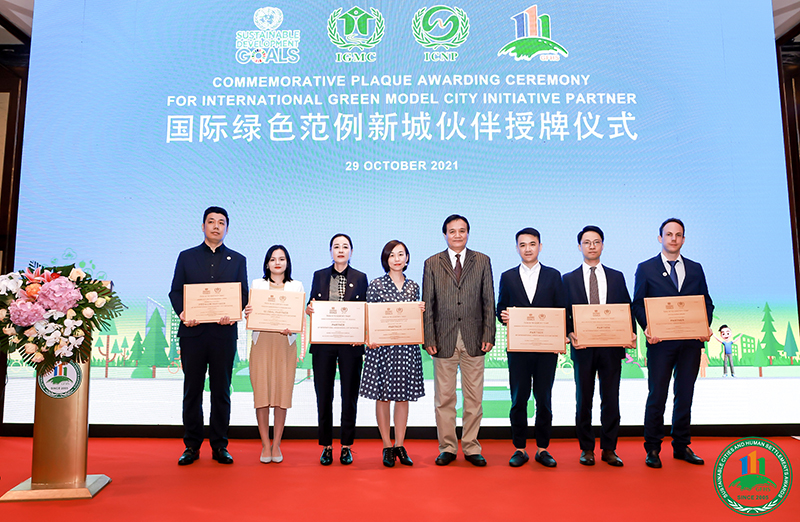The distinguished keynote speakers
Ambassador Anwarul K. Chowdhury, Chairman of Global Forum on Human Settlements, Former UN Under-Secretary-General and High Representative pointed out in his opening remarks that “This Sixteenth Forum is again another timely, relevant, and appropriate initiative that is aimed at making the international community alert and proactive about the issues of urbanization in a holistic manner. Sustainable development is the fundamental, intergenerational responsibility of our societies’ efforts which benefits all. Successful, well-governed cities greatly reduce climate-related risks for their populations and for our planet as a whole.”
Dr. Elena Manaenkova, Deputy Secretary-General of World Meteorological Organization stressed that “Cities are the hotspots of global warming facing large implication and more frequent and intense extreme events. Integrated urban services and multi-hazard warnings are required to save lives and minimize losses. WMO Unified Data Policy Resolution should be followed for free and unrestricted exchange of Earth system data for advanced high-resolution forecasting and urban-scale modeling.”
Elizabeth Maruma Mrema, Executive Secretary of the Convention on Biological Diversity recommended that “We need to create a design model and construction code for truly green cities. This should include transitional and transformative technologies towards nature. This means incorporating water, ecosystems and soil into the texture of cities’ infrastructure and urban metabolism. We also need to scale up finance and investment for the green city model. This includes construction and renovation/adjustment as well as operations. In other words, green and blue incentives, as well as an acceleration of the circular economy should be promoted.”
GFHS Secretary General Lu Haifeng pointed out in his closing remarks that “As the main battlefield to claim carbon neutrality and sustainable development, future-oriented cities feature several trends, i.e., decoupling, de-carbonization, decentralization, digitalization, polarization and glocalization, where both opportunities and challenges exist. GFHS 2021’s commitment to uniting global cities to tackle climate change towards sustainability echoes with the purpose of COP26, which makes synergetic effects.”
Other important speakers at GFHS 2021 include Dr. Kevin Kanina Kariuki, Vice President for Power, Energy, Climate and Green Growth, African Development Bank Group, Dr. Awni Behnam, Fmr. United Nations Assistant Secretary General and Hon. President of International Ocean Institute, Marco Lambertini, Director General, WWF International, Dr. Frank Rijsberman, Director General, Global Green Growth Institute, Dr. Nuki Agya Utama, Executive Director at ASEAN Centre for Energy, Dr. Robert Andrén, Director General of Swedish Energy Agency,Dr. Rodolfo Lacy, Director of the Environment Directorate, Organisation for Economic Co-operation and Development, Dawood Abdul Rahman Al-Hajri, Director General, Dubai Municipality, United Arab Emirates, Ramon Torra, Chief Executive Officer, Barcelona Metropolitan Area, Spain, among others.







